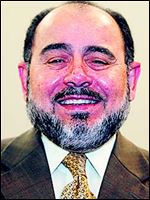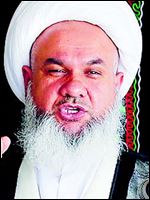رَبَّنَا آتِنَا فِي الدُّنْيَا حَسَنَةً وَفِي الآخِرَةِ حَسَنَةً وَقِنَا عَذَابَ النَّارِ
Our Rabb! Bestow on us the good of this life, the good of the hereafter, and protect us from the punishment of the fire. Q 2:201
This Du'a is a demonstration of the balance we are to have in life. Some people are fixated on the hereafter, wanting to attain heaven to the point of neglecting any connection or responsibilities in this world. That particular trend is itself addressed elsewhere in the Qur'an. A clear example is " And seek with that Allah has given you the home of the hereafter, yet do not forget your portion of the worldly life[dunya].." [Q 28:77].
Practicing Muslims will recall that this supplication is oft recited during the Jumu'ah prayers. It is also recited when invoking Allah during Tawaaf [circuling the Ka'bah] at Hajj.
The Qur'an and Hadeeth both deliver to us definitions as to what constitutes what we should view as good or a blessing. Meaning, what exactly should we seek. It can be argued that Al-Faatihah itself tells us what we should seek, but for the moment let us refer to a supplication that the Messenger of Allah [Muhammad, upon whom be peace and blessings] would make atleast twice daily . [Ft.#1]
"O Allah, I ask of you [1] Useful knowledge [2] A provision that is lawful and wholesome [Rizqan Halaalal Tayyiban] [3] Deeds that are acceptable [to you, O Allah], by your mercy, O You who are the Most merciful of those who bestow mercy."
It's the second part of the above supplication we are concerned with here, although the whole of the Prophet's Du'a is worth examination. We are to seek that which is wholesome, that which will bring elements that will add to happiness and security. It's not enough to have a job, we are to want jobs that involve that which is lawful in God's sight. It's that job, that activity in this life that also counts for what we are to get in the next life. We abandon neither Dunya nor Aakhirah. We seek both.
This is illustrated in the next supplication, which is another personal favorite.
A part of life that's very important is the family life. Men want women and women want men, and the family that comes forth from such relationships, but they are to seek that which will be true joy in life. I emphasis this here because we live in times when family ties are widely broken. The end of the above Du'a is that that family unit be examples in Taqwaa. Parents are to teach their children and the children are to listen to them. That teaching comes in words, but most importantly in actions and attitudes. [ft.2]
رَبَّنَا هَبْ لَنَا مِنْ أَزْوَاجِنَا وَذُرِّيَّاتِنَا قُرَّةَ أَعْيُنٍ وَاجْعَلْنَا لِلْمُتَّقِينَ إِمَامًا
Our Lord, bestow on us wives and children which will comfort our eyes, and make us leaders for those who have reverence for you. [Q 25:74]
رَبَّنَا لاَ تُزِغْ قُلُوبَنَا بَعْدَ إِذْ هَدَيْتَنَا وَهَبْ لَنَا مِن لَّدُنكَ رَحْمَةً إِنَّكَ أَنتَ الْوَهَّابُ
رَبَّنَا إِنَّكَ جَامِعُ النَّاسِ لِيَوْمٍ لاَّ رَيْبَ فِيهِ إِنَّ اللّهَ لاَ يُخْلِفُ الْمِيعَادَ
Our Lord, do not make our hearts deviate after having been guided, bestow on us, from you, mercy, Verily,you are the bestower. Our Lord, Indeed you are the one who will gather all people on a day in which there is no doubt. Verily, Allah does not fail in his promise. [Q 3:8-9]
In the Qur'an these supplications are side by side. Guidance is truly there when we are cognizant of Qiyaamah, that period when all will publicly stand before God in facing judgement. We are reminded of this daily when we recite Al-Faatihah in our prayers. The last sentence of the last verse above in Arabic is Inn Allaha Laa Yukhliful Mee'aad. It's a powerful sentiment in Arabic, hard to convey well in translation, so I will just explain the word "Laa". In daily language, it simply means "No". However, in Arabic we have many particles of negation, the "Laa" is a continuous negation. Thus, we have here, simply put, that Allah has never and will never break or abandon his promise. He says clearly that Qiyaamah will come. He says clearly that judgement day will come. Not as an allegory, but as a real event in history. So, we prepare for that by praying, that invoking and seeking God, and striving to live in an ethical and moral fashion.
Say: verily, my prayer, devotional acts, my life and death are all for Allah, the Lord of the Universe [Q 6: 162]
This appears in a rather beautiful section of the Qur'an, but we are focused on this part of the supplication. This sentence is the summary of the Deeni message, that our existence be served in the best of causes. This does not mean one becomes a saint or a monk, but it does mean having this awareness of God that is so profound that it develops a person into a Muttaqi personality. It should be noted that this Du'a is, for many people, part of the opening texts recited in the beginning of Salaah [i.e. the Istiftaah] and is said to be from the Prophet's own practice.
اللَّهُمَّ أَنْتَ رَبِّي لّا إِلَهَ إِلَّا أَنْتَ
خَلَقْتَنِي وَأَنَا عَبْدُكَ،
وَأَنَا عَلَى عَهْدِكَ وَوَعْدِكَ مَا اسْتَطَعْتَ،
أَعُوذُ بِكَ مِنْ شَرِّ مَا صَنَعْتَ،
أَبُوءُ لَكَ بِنِعْمَتِكَ
.عَلَيَّ، وَأَبُوءُ بِذَنْبِي فَاغْفِر لِي فَإِنَّهُ لَا يَغْفِرُ الذُّنُوبَ إِلَّا أَنْتَ”
This is popularly known as the master of prayers said to seek forgiveness, or Sayyidul Istighfaar. The Prophet himself صلى الله عليه وسلم
taught this supplication, according to Saheeh Al-Bukhari [75:318] . It's translation is:
O Allah, you are my Lord, none deserves worship except you. You created me, and I am your servant, faithful to my promises and covenant to you as much as to my capacity. I seek refuge with you from all the evil I have done, I acknowledge all the blessings you have bestowed on me, and seek forgiveness from your for my sin, as none can forgive my sins except you."
What I love about this du'a is that in it you say, to God "I am faithful as much as i can". Meaning, the supplicant is not perfect. He or she does the best they can. When one seeks forgiveness from Allah, that person is also engaging in an attempt at self-forgiveness, so the Prophet's words that make this Du'a are also instructive, in a way, saying "calm down, everything is going to be fine."
Self-forgiveness is often harder to obtain than Divine forgiveness, so making this supplication often can convey to the human being that fact and, consequently, allow that person to get out of depression and self-loathing.
Footnotes
[1] The Prophet Muhammad's practice was to recite this supplication at Fajr [dawn] and Maghrib [sunset] time, the traditional beginning and end of the workday.
[2] Here I acknowledge Imam Farooq AbouelZahab, who, in a recent lecture at our mosque, pointed out the context of this supplication. By going to 25:63, we see that humbleness is the beginning characteristic needed for a believer, along with other ethics mentioned all the way till verse 74. Meaning, those prerequisites are needed before that Du'a can be answered in a positive way.






